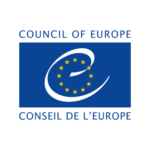Covid-19 impact on youth participation and youth spaces
Year of production: 2022
Image by Alexandra_Koch from Pixabay
To explore the impact of Covid-19 on youth participation and civic space for youth, this study adopted and revised a framework from the Transparency and Accountability Initiative framework on improving the measurement of civic space (see Malena, 2015). This framework aims to support and advocate for the protection and enablement of civic space. It seeks to measure civic space against a set of core principles that build on a traditional triad of civic space ( freedom of expression, freedom of association and freedom of peaceful assembly), while allowing for detailed and country specific accounts (Malena 2015: 7). In line with this framework, we have focused particularly on examining the three dimensions: a) citizen 12 participation; b) freedoms of information and expression; and c) rights of assembly and association.
In the context of citizen participation, the study examined the ability to advocate for others freely and without fear of retribution; the ability to participate in processes of deliberation and decision-making processes on important issues (e.g. through public consultations, joint committees, participatory planning or policy-making processes, etc.), the ability to influence the outcome of decisions), the ability to influence the outcome of policy deliberation and decision-making processes; the extent to which public authorities control youth organisations, the frequency of invitations from public authorities to participate in finding solutions to the problems in the field of activity concerned, the extent to which public authorities are willing to co-operate with youth organisations, and the extent to which public authorities are willing to recognise the opinion of youth organisations. Freedoms of information and expression were examined in terms of the ability to access information (including financial information) from state sources, the ability to express opinions freely in public without fear of retribution, and the ability to use the internet freely (both for access to information and for communication). For the rights of assembly and association, the paper looked at the ability to organise/participate in public meetings or demonstrations without fear of reprisals, the ability to operate independently and free from state interference, support from the authorities, the imposition of restrictions by the authorities, barriers to accessing foreign funding (e.g. EU, funding from other international organisations, foundations), and the degree of assessment by “market” indicators (e.g. the amount of private funding raised, basic quantitative indicators, etc.). A more detailed description of the variables can be found in the research tool in the Annex.
We have oriented ourselves towards the most important actors that secure civic spaces and youth participation – organisations that are active in the youth field. They are the focus of this study because they advocate for and represent youth interests as well as providing services that are best suited to youth needs. In addition to their civic and political socialisation function, these organisations serve as true laboratories of democracy and democratic innovation, demonstrating new repertoires of political action and coming closest to the 13 diverse political imaginations and citizenship of youth. As such, these organisations are one of the best mechanisms to identify the impact of Covid-19 on youth participation and civic space. In our purposive sampling process, we captured the most politically and socially relevant youth organisations, regardless of their legal form, by examining the membership of the main European and national youth umbrella organisations and supplementing this list with the relevant youth organisations from the European Commission’s Youth Wiki tool. Accompanying this strategy, the Youth Partnership networks were used to disseminate the invitation through these channels as well. Organisations were contacted through their official emails, with clear instructions on which person or group of people should fill in the web-based questionnaire. We sent out two rounds of invitations in December 2021 and received 109 valid responses.





